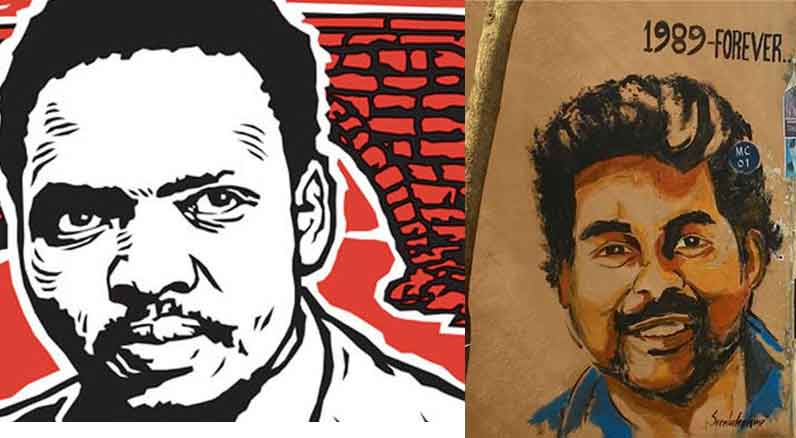Rohith Vemula And Steve Biko: Implications Of A Tragedy
By Pushkar Raj
30 January, 2016
Countercurrents.org

Rohith Vemula’s ‘social murder’ early this month is in some ways similar to the political murder of Steve Biko by the South African regime, in the aftermath of Soweto student uprising, at the height of apartheid oppression in 1977. There, the collaborating institution was the apartheid police; here, close home, it is Hyderabad Central University.
Steve Biko, the young leader of the black consciousness movement, was an outstanding critique of the white supremacy and apartheid. Rohith was at an ideological war with the brahmanical supremacy and its various organizational off shoots including RSS, ABVP and the ruling regime at the centre.
Death of Steve Biko galvanized South African youth to come out, organize and form the United Democratic Front- an anti-apartheid umbrella group. Inspired by the ideology of black consciousness under the banner of UDF, the new leaders emerged leading the nation into the turbulent eighties and liberation in early nineties. It would be a fitting tribute to Rohith Vemula, if something similar emerges and spreads across India to decrease the social exclusion and suffering for an average Dalit student that he/she goes through in the system today.
Rohith’s death is symptomatic of a larger disease in the contemporary Indian society that has crept into it in recent times. Hindu rightist affiliated forces have arrogated to themselves the authority and power to put lid on an individual’s freedom to think, express and disagree. Anyone who does not conform to their archaic, patriarchal, discriminatory and exclusive world view is termed ‘anti-national’. It is a term which is empty, emotive and open to interpretations and relates to an abstract entity than a mass of people. One may be insisting on justice-social, economic, political- for the people but still be dubbed anti-national by them.
Steve Biko’s murderers were let off lightly despite clinching circumstantial and photographic evidence. The apartheid system was so insensitive, arrogant and unjust that it thought, it could get away with it. Sensitivity and justice to it was the sign of cowardice. Same is happening in Rohith’s case.
Confronted with the protesting students, the Prime Minister of the country resorts to symbolism to respond to the tragedy of Rohith’s death as if he was never a real ‘human being’ who did not matter, except in relation to ‘maa bharti’, an abstract entity. At the same time, the foot soldiers of ‘maa bharti’ continue to be in office and assert that it is not a Dalit issue. On top of it a section of mainstream and social media has started Rohith’s identity assassination, killing him over again.
The angry Dalit students’ demonstrations all across India suggest that there is a deep rooted discrimination against the Dalit youth in the educational system. These are the students who spontaneously identify with Rohith Vemula. The student protests are indicative of emergence of a new youth amongst Dalits- those who are, aggrieved and assertive.
Dalit students now understand that mainstream student organsiations can neither give them space nor articulate their aspirations. They will have to be at their own, not at the mercy of so called liberals.
It is time for Dalit youth to create a new vocabulary of Dalit reality and empower their community. In their fight against the oppressive Indian social system they require an alternative narrative such as black consciousness in South Africa.
This narrative, as it did in South Africa, should ensure that by being described as Dalit they start on a road to emancipation; they commit themselves to fight against all forces that seek to use caste as a stamp that marks them out as an inferior being. They must organise as a group in order to cast away themselves of the chains that bind them to continuous victimhood.
What Dalit youth require now is solidarity of enlightened amongst them. They need an ideology (different from critique of Hinduism) with a pan Indian character, binding them across the regions that liberates them first psychologically and induces them for a lasting action.
Rohith Vemula’s birth anniversary today should serve as a starting point to that direction.
Pushkar Raj is a Melbourne based writer. Formerly, he taught political science in Delhi University and was the National General Secretary of People’s Union for Civil Liberties (PUCL) India. He can be reached at [email protected]

